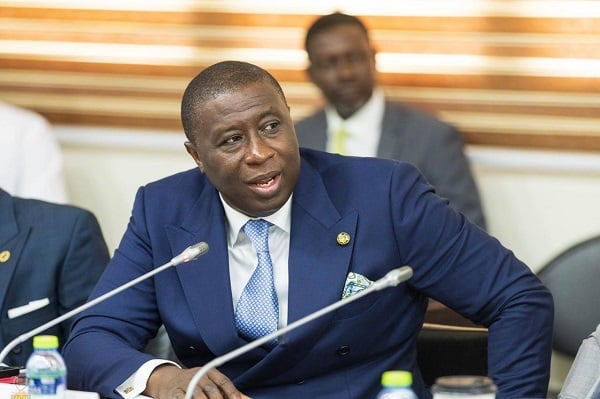Member of Parliament for Okaikwei Central and former Deputy Majority Whip, Hon. Patrick Boamah, has formally withdrawn from Ghana’s newly reconstituted delegation to the Pan-African Parliament, citing concerns over his designation as an “Observer.”
In a memorandum addressed to the Speaker of Parliament, Rt. Hon. Alban Bagbin, dated July 23, 2025, Hon. Boamah explained that his decision was driven by the limitations imposed on observers at the Pan-African Parliament, who are barred from participating in plenary sessions and committee meetings.
“My checks with the Pan-African Parliament Secretariat indicate that Observers are not permitted to participate in plenary sitting or committee meeting. Observers are only permitted to attend upon meeting,” Boamah stated in the memo.
His withdrawal comes just days after Parliament adopted a resolution on July 22 to reconstitute Ghana’s delegation to the continental legislative body, naming Boamah among the observers.
Boamah insisted that his inclusion in the delegation was not a favour but a constitutional right, as the Minority is entitled to two representatives under the parliamentary committee allocation formula. He cited the established 68:32 majority-minority ratio that governs parliamentary representation in both local and regional bodies like the ECOWAS Parliament.
“Under the established formula for committees and delegations, my inclusion is by right… the 68:32 ratio… was equally applied in constituting the ECOWAS Parliament delegation,” he asserted.
In concluding the memo, Boamah said his decision to withdraw was intended to “avoid any potential embarrassment to the Parliament of Ghana and Ghanaians as a whole.”
The memo, which has been copied to the Majority and Minority Leaders, as well as the Clerk to Parliament, underscores the rising tensions over the composition of Ghana’s international parliamentary delegations.
Observers say the development could reignite debate over equitable representation and transparency in the selection of MPs for international assignments, especially within politically sensitive bodies like the Pan-African Parliament.


